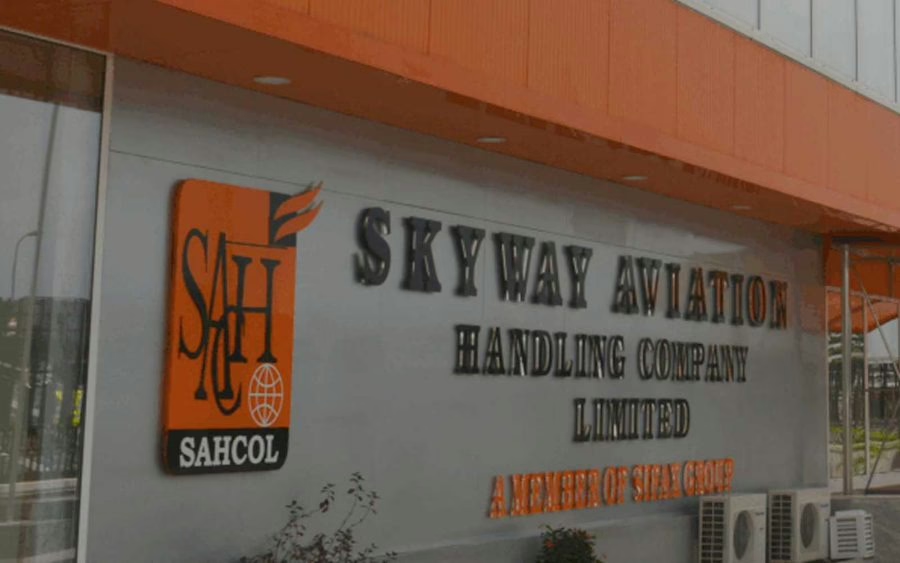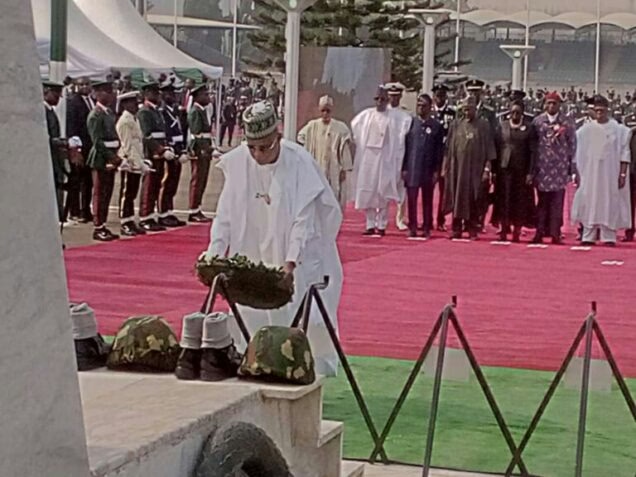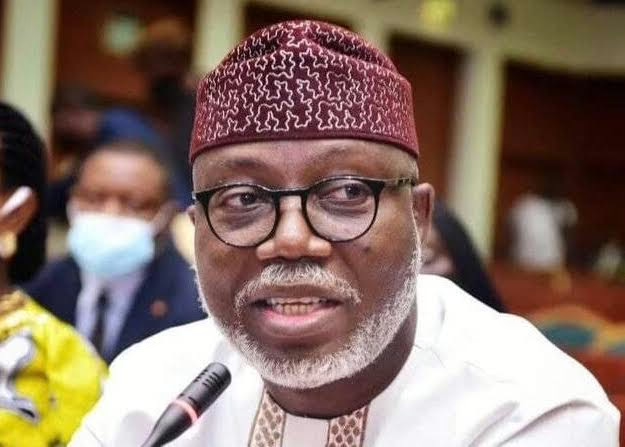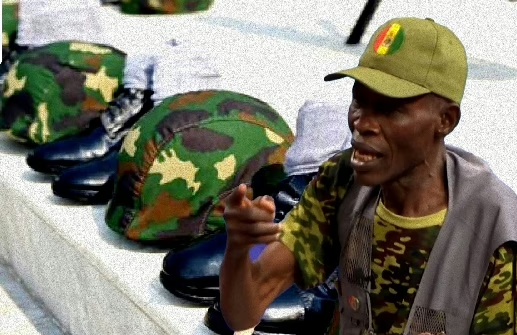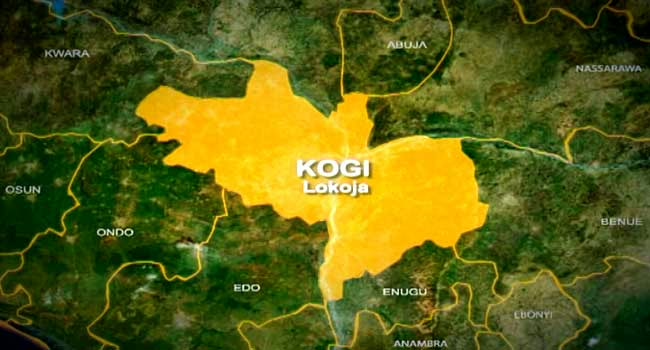Just hearing me speak you would sense my passion for the power sector. So Millwater is one of one of the vehicles for discharging our burden for Nigeria’s power sector. I always tell people that as a nation, we have absolutely no reason to be where we are regarding our power needs. And why do I say so? Nature. God in His infinite mercy has given to us everything we need to produce the power requirement for a beautiful nation. We have a high amount of sunlight, hydro, we have mineral resources, gas, oil. We also have coal- to generate the power necessary for Nigeria as a nation.
So, when we see the deficit in the power requirement, coupled with the economic losses that come from it, it gives us the burden.
That was why we started Millwater Energy Solutions. As an individual, this journey started about two decades ago. But as a company; this particular aspect of the business was put together about two or three years ago.
We started to put the work into this aspect of consulting and expediting the power sector three years ago.
I would say it is interesting and very exciting. Maybe because we are people full of faith in the possibilities that exist. I have given a premise that we are abundantly favoured by nature, right? So, we see the possibilities and the recent developments in the power space have also pointed to the fact that the promise of the future we are looking at is coming together.
I’m talking about the bills and all of the regulations that are being currently passed. So, we are at a point where we are trying to put boots on the ground and put in the work. For this sector to work; we must roll up our sleeves. The plans have to leave the boardroom.
Millwater is already in talks with the Federal Government through the Niger Delta Power Holding Company to sell some captive power to consumers around the Agbara axis. Could you shed more light on the project?
It recently became necessary that our presence be in the media space, but ordinarily, as expeditors, ours is to make things work while others become our face out there. Our relationship with the NDPHC is that of partnership to enable further sales of stranded power within the grid. Against popular belief, though we know that the generation capacity in Nigeria; there is a deficit based on the ratio of the generation to the population, but still; the one being generated has not been fully optimised. So, we are in partnership with NDPCH as expeditors in the space to help them, working with the distribution companies to evacuate excess power we have within the grid.
We flagged off our maiden project in Agbara where the Vice President, Senator Shettima, had a one-day industrial visit to the industries in Agbara. That visit was an eye-opener to our crusade in the last two years. Actively, we have been on the crusade that there are people who are willing to do what it takes to get grid power to them, so that they can focus on their core business and not have the day-to-day hassles of trying to ensure they generate power for themselves. Because if you’re not in the business of generating power for yourself, no matter the systems you put in place, it is going to be a distraction to your core business.
So, graciously, we have the ears of the vice president, and he wanted to see things for himself. It was a working visit, and that day also we flagged off the maiden project called ‘Light Up Nigeria. We are lighting up Nigeria- one industrial cluster and one residential cluster at a time.
And we are hoping that that model of unlocking grid power in various clusters will be replicated all over Nigeria.
We are unlocking these projects one at a time. For instance, the Agbara project is projected to be the first phase for just the industrial cluster of 150 megawatts. By that time we are considering the entirety of the Agbara area, inclusive of the residential area, which may rise to about 250-300 megawatts.
We will find other areas within Lagos and Ogun state, and several other partners that are coming on board eventually. We can replicate this and see potential growth to up to 800-820 megawatts within the next two years. The idea is that the average need required to do business or to live a fair life is power.
Millwater has other interests in renewable energy. Conversations are ongoing regarding different partnerships at different levels. However, our grid power provision is not able to cater for 100 per cent in those areas we seek to use. But renewable energy or low fossil fuel energy will make up for the deficit.
So, in areas where we are guaranteeing them 95 per cent availability- some industries and maybe some sectors are critical sectors where they cannot deal with as low as 0. 5 per cent unavailability of power because of the critical nature of their operation. For instance, we have a client in Agbara, Better Glass. The company is one of the prospective off-takers in the Agbara project. The company cannot do without power for 24 hours. So, for such popular customers, we have provisions for renewable or fossil fuel generators that are low on carbon emission to augment the five 5 per cent deficits of power.
As an expeditor, one of the things that we bring into the industry is the funding required for a job to be done. But as to how the recovery is being done, because every business has to keep itself going, you must be sure that you can collect the receivables.
We are also bringing technology into the sector. So, in our helping the Discos, one of the services we render is in the area of feeder optimisation, monitoring and collections. We are introducing artificial intelligence method, AI monitoring into the collection system.
What that means is that in a franchise area, we make sure that first; the feeder is monitored on a real time basis. The idea is to identify areas of technical faults and also areas of power leakages. You have issues around power thefts,power leakages, inefficiencies,fault detections. Early corrections must be done to forestall the disenfranchisement of consumers. If I need power and I cannot get it and my operation is critical to me; I would go somewhere else to get it. And that is why a lot of people have resorted to self- generation. So, with our artificial intelligence method and feeder monitoring, a system is created where we are able to detect faults real time. The operations and maintenance team are sent in there to fix it, and this is reducing our technical losses.
Then, in the areas of collection, we also make sure that the meters are properly metering the energy being expended, and people who are receiving this energy feel that the energy is stable and is healthy. So, if the individual has consumed this power, it is just right that they pay for it. The artificial intelligence method helps to detect power theft, and that is of course correct that defendants are made to pay what is due to them, ensuring that commercial losses are minimised.
So with these methods, we reduce the technical and commercial losses, increasing the ability of the Discos to get the money as and when due. And the government has played a great role so far in making sure that whatever the shortfalls are; the system is put in place to ensure that the discourse is all solid.
Every nation that wants to be progressive must create systems where value is exchanged in a fair manner. So, if value is given, it should be paid for. Eventually, everything within the system must be put that way for a nation to progress.
What we’re discussing right now is what we have currently- would it take us to where we need to be as a nation? And the answer, technically, is that we need to begin to progressively review our position on government funding of power. And let’s look at this- It is just a simple analogy, we know that somewhere, somehow, energy is not lost. It is transmitted from one place to another. So, if you look at it, the deficit of power in Nigeria- people are self generating. If you do a critical analysis of how much individuals are spending on generation, either by using petrol or diesel generators, indications are that it is astronomically much more expensive than what we save, if the multi-year tariff order is available. So, it’s not really about us as investors because our own goal is to ensure that the economy is unlocked in the sense that power is delivered to the people who need them to do business.
So, everybody must begin to carry out first a mind adjustment that at a certain point; the current MYTO has to be reviewed. However, the Discos must first begin to look at our system, and begin to engage methods for effectiveness of what is currently on ground. There are still opportunities to be tapped. Everybody must begin to sit down within the sector and think progressively, and look at the best method. How is it being done outside this shore? There are places where power is working. How is it being done there? And these methods must be brought to bear in Nigeria. Because I said at the beginning of this conversation that as a nation, we’ve got all it takes for us to get power. We’ve got the sunlight, we’ve got the water, and everything. What this means is that if you take out the bureaucracies, and put the right processes- we don’t lack the people. We have smart people within the sector. We don’t lack the technocrats- the people with the ideas. We just need to look at our posturing as a people. We also see the body language of the current administration. For vice president Shettima to come all the way to Agbara, an industrial area. It wasn’t a fun trip for him- it was a business trip. His body language showed. For instance, the Agbara project- we had projected to finish the first phase in six months. But there and then; he was persuading the NDPHC and the Millwater teams to do all that is within their power to finish that project in four months.
This speaks to the federal government’s posture in their eagerness to make power available. So, if all the parties within the value chain sit down, speak one to another, educate the people- that for currently, if you calculate the cost, lost time, efficiency, operations and maintenance, cost of diesel, and what you spend in self generation- then you will really ask for half of that if that is what it will cost for the grid to work.
So, how and when, and how the government stages the subsidy remover is a conversation that is way outside this interview. But will it be removed eventually? At some point it has to.
You alluded to the fact that there is a blame game. That means there are accusations and counter accusations.
A couple of people are willing to pay, and I use my words very carefully. A good number of people are willing to pay for power that is efficient. Everybody in the value chain must sit down. There must be a good handshake.
We have the generating companies that generate power. We have the TCN that wheels this power to the Discos. Then eventually; we have the distribution with the infrastructure to wheel power to the end user. So, within this entire value chain, we also have regulatory bodies like NERC and the rest who sit on how this entire chain works. That conversation, now that we have seen the will from the part of the government based on the project has to be brought to the table and all inefficiencies have to be identified and then unlocked.
People like us in the private sector, that’s where we come in, to bridge the gaps that exist within the sector. For instance, for our current operation, we have identified the gap of liquidity. And then we are enabling power purchase agreements where we are able to stand in between to provide funding gaps to both Discos and generation to enable this to happen.
And we are going ahead to identify premium off takers who are willing to take power, even if it means paying a little bit more than the current MYTO rates. For instance, in our Agbara projects, we have identified a few of them, and then we are using artificial intelligence methods to make sure that the feeders, this power is moved from point of generation, transmission to the end users.
Once we look at that sector, but it’s just one small cluster- I’m not talking about the entire nation. More people will be required to step in. More people will be required to come in to see, to share the optimism that Millwater has. With this potential we are able to unlock it. And then, in the chain also, people must also rearrange themselves and deviate from bad behaviors. Even people who willingly bypass meters, and those who want to collect power for free- that is bad behavior. People who vandalise government properties. And we see these cases very often, even within our international arsons.
We go to other countries and see how it is working. If Nigeria will work, it’s up to us. It is no longer going to be a one party team and the blame game does not help us. We have been on it for years. This is all of us putting on our work hats, pulling off our sleeves and saying- if this is going to work, it is up to us.
If I see my neighbour using power, and I know he is bypassing the meter,-I should challenge him on behalf of the government. If I see some people trying to trample public property, I should engage them, and then for those who sit in public offices, you do your work.
If you’re a TCN, you do your work. If there’s a challenge, we flag it up, escalate it. From the few days we had worked with NDPHC and the Office of the Vice President, we’ve seen a difference in the posturing and body language. And I think that everybody within this space should take advantage of it, and let’s get to work. I believe in the next 24 months, if we do the right things, the power situation in Nigeria will improve.
And just to also say that an opportunity has been created where even the state government can begin to contribute to self generation. What that means is that more power can be thrown into the grid.
So, the opportunity becomes huge and vast for everyone to get power. And more players can come into the various areas that have been identified.


